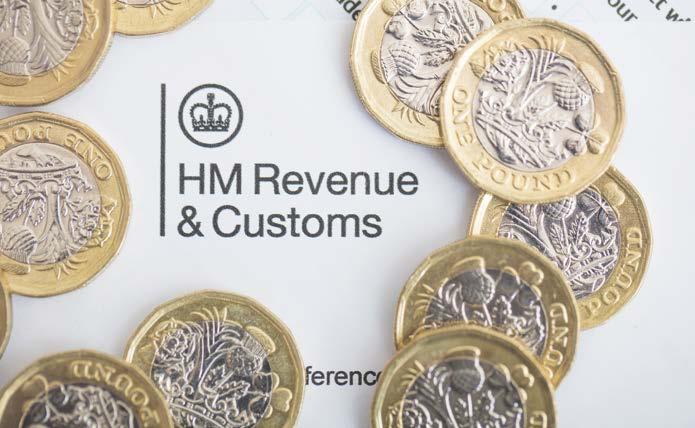
6 minute read
News and views
TAX POLICY
UK tax policies and consultations
The government has published a policy paper “Tax policies and consultations (Spring 2021)” outlining a number of measures that are designed to enhance the stability and effectiveness of the UK tax system by outlining a future pathway for its tax administration and tax policy development.
These measures shape the next steps in delivering the government’s ten year tax administration strategy, and will take forward policy development across a range of important tax issues, including business rates and environmental taxes, as well as a range of simplification measures. Further details are available at gov.uk.
OECD
OECD reports to G7 on need to strengthen economic resilience against crises
Creating an emergency Rapid Response Forum to ensure that global supplies of essential goods continue to flow during major international crises is one of a broad range of recommendations contained in a new OECD report to the G7 on building economic resilience. The report, “Fostering economic resilience in a world of open and integrated markets”, says that the devastating impacts of the global financial crisis and now the Covid-19 pandemic will continue to leave lasting scars on our economies and societies. With the risk of other systemic threats on the horizon – starting with climate change but also spanning security threats, including cyber-attacks – it is critical to learn the lessons of these and previous crises in order to tackle the vulnerabilities of our economic system, absorb shocks and engineer a swift rebound. Ensuring the resilience of global supply chains of essential goods is crucial, the report says. An emergency Rapid Response Forum would provide the G7 and other governments with a means of upstream policy co-ordination and, particularly, consultation ahead of the imposition of any trade restrictions. Such an initiative could also prepare timely co-operation on logistics, transportation, procurement, planning and communication. Commissioned by the UK government, which is currently holding the G7 presidency, the OECD report underlines the need for governments to co-operate both with the private sector (through, for instance, supply chain stress tests and emergency planning) and with other countries to boost transparency, discipline export restrictions and adhere to international regulation and standards. The report says the Covid-19 crisis has caused a huge surge in demand for certain goods, notably in the health and information technology sectors but argues that global supply chains have been part of the solution. After shortages of masks and personal protective equipment, in particular at the beginning of the pandemic, the global production and trade of facemasks both later increased tenfold to meet demand.
HONG KONG
Hong Kong government clarifies tax policy
The Hong Kong government has clarified its tax policy in response to media enquiries about an article in the Financial Times, published on 22 March, carrying an interview with the Chief Secretary. The government insists that it has maintained a high level of transparency in taxation policy with a low and simple tax regime and will continue to do so.
The government stressed that Hong Kong’s economic success has been built on a thriving market economy and a small government underpinned by a simple, transparent and low tax regime. Businesses and individuals in Hong Kong enjoy one of the most competitive tax systems in the world. It pointed out that Hong Kong has always been a staunch supporter of international efforts to enhance tax transparency and combat tax evasion and money laundering.
UK-EU NEGOTIATIONS
Technical negotiations concluded on UK–EU MoU
Technical discussions on the text of the Memorandum of Understanding (MoU), which was agreed in a Joint Declaration on Financial Services Regulatory Cooperation alongside the Trade and Cooperation Agreement, have now been concluded.
Formal steps need to be undertaken on both sides before the MoU can be signed but it is expected that this can be done expeditiously. The MoU, once signed, creates the framework for voluntary regulatory cooperation in financial services between the UK and the EU. The MoU will establish the Joint UK-EU Financial Regulatory Forum, which will serve as a platform to facilitate dialogue on financial services issues.
IASB
IASB seeks comments to help shape its five-year plan

The International Accounting Standards Board (Board) has published a consultation document to seek views on what the Board’s priorities should be over the next five years. This is the third time the Board has consulted the public via an agenda consultation to help create its five-year plan. The Board is asking for views on the strategic direction and balance of its activities – for example, how much time it should spend on developing new IFRS Standards compared with that spent on its other activities, such as supporting consistent application of the Standards. The Board is also seeking views on which financial reporting issues it should prioritise and on the criteria for adding projects to its work plan. The feedback received will help the Board to determine its activities and work plan for 2022 to 2026. Some of the Board’s capacity during the period from 2022 to 2026 will be devoted to completing projects already underway and to post-implementation reviews that assess whether recently issued IFRS Standards are working as intended. However, the Board also expects to have capacity to take on some new projects. In parallel with the Board’s Agenda Consultation, the Trustees of the IFRS Foundation are considering the establishment of a sustainability standards board to operate alongside the IASB within the Foundation’s governance structure. The Board is asking for stakeholder comments on the Request for Information Third Agenda Consultation by 27 September 2021.

DIGITAL ECONOMY
EU will move ahead with tax take from digital economy
The EU is willing to move ahead with its own proposals on taxing the digital economy if an agreement is not reached at an international level, according to the current EU Council presidency. According to João Leão, the Portuguese Minister of State for Finance, EU finance ministers had discussed the taxation of the digital economy at their informal meeting on 16 March 2021. The negotiations are currently in progress at the OECD level, and it was reported that the ministers wished to give them time, with the aim of finding an overall consensus in a multilateral context. In January 2021, the European Commission asked for views on an EU-wide digital levy, which would cover digital services, including social media, online marketplaces and other online platforms that operate in the EU.
ISLAMIC FINANCE
UK bolsters Islamic finance offering with second Sukuk
The UK has bolstered its position as a world-leader in Islamic finance by issuing its second sovereign Sukuk, the Islamic equivalent of a bond. £500 million of Sukuk with a fiveyear maturity has been sold to investors based in the UK and in the major hubs for Islamic finance in the Middle East and Asia, where there is strong demand. The UK issued its first sovereign Sukuk in 2014, making it the first country outside the Islamic world to issue sovereign Sukuk and cementing its position as an international centre for Islamic finance. This second Sukuk offering is more than double the size of the first issuance, increasing the supply of high-quality, Sharia-compliant liquid assets to the market and supporting the development of Islamic finance products in the UK. The Chancellor of the Exchequer Rishi Sunak said: “We’ve set out ambitious plans to make the UK the most open and dynamic financial centre in the world. “By launching our second sovereign Sukuk, we’re cementing the UK’s position as the leading global hub for Islamic finance outside of the Islamic world. “Strong investor demand for this Sukuk meant we achieved a good price for the taxpayer and will help us develop our relationships with Islamic economies around the world.” As with the first issue, the second sovereign Sukuk will use the Al-Ijara structure which is in widespread use in the market. It will be underpinned by rental income from a number of central government office properties which are owned by the government.










